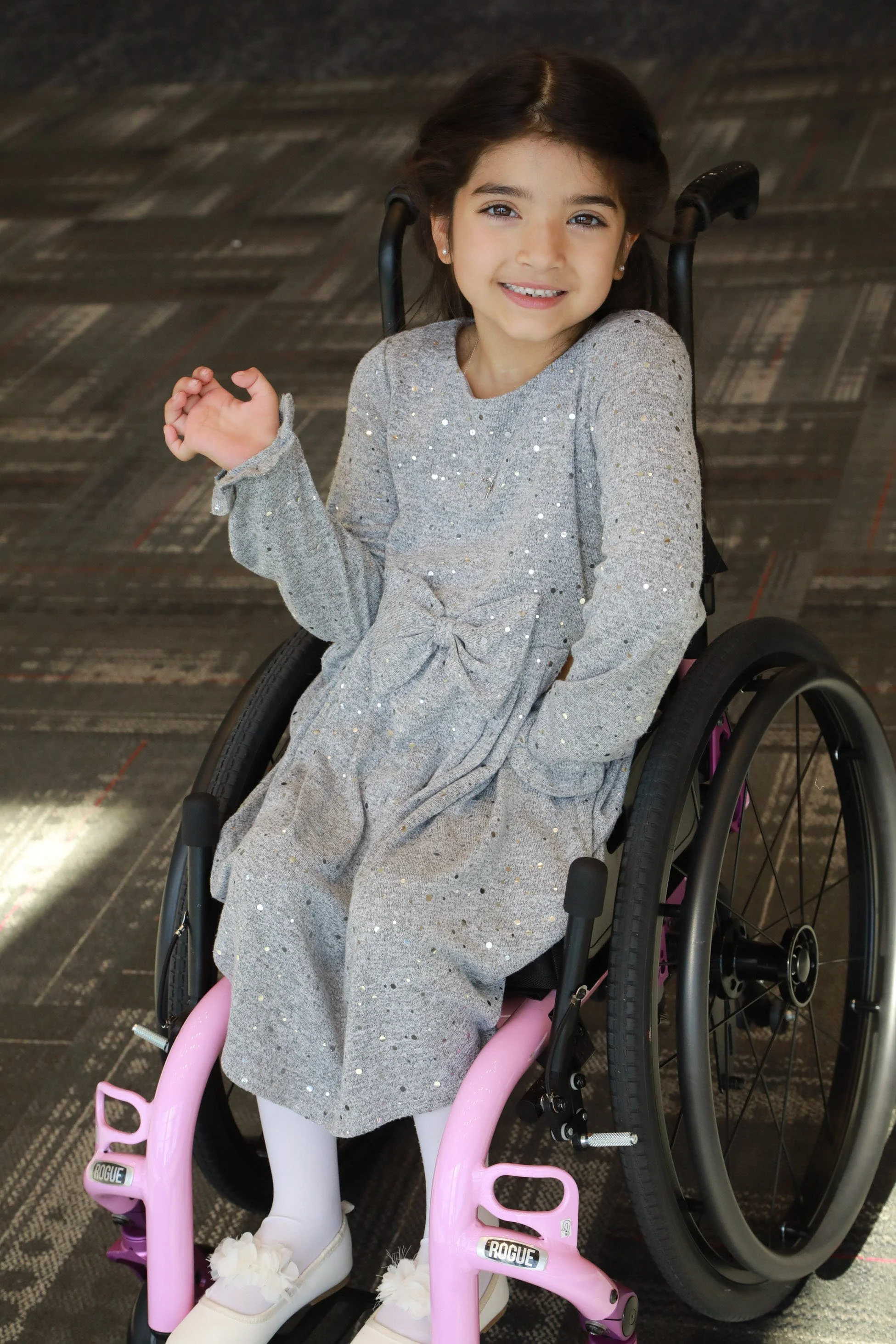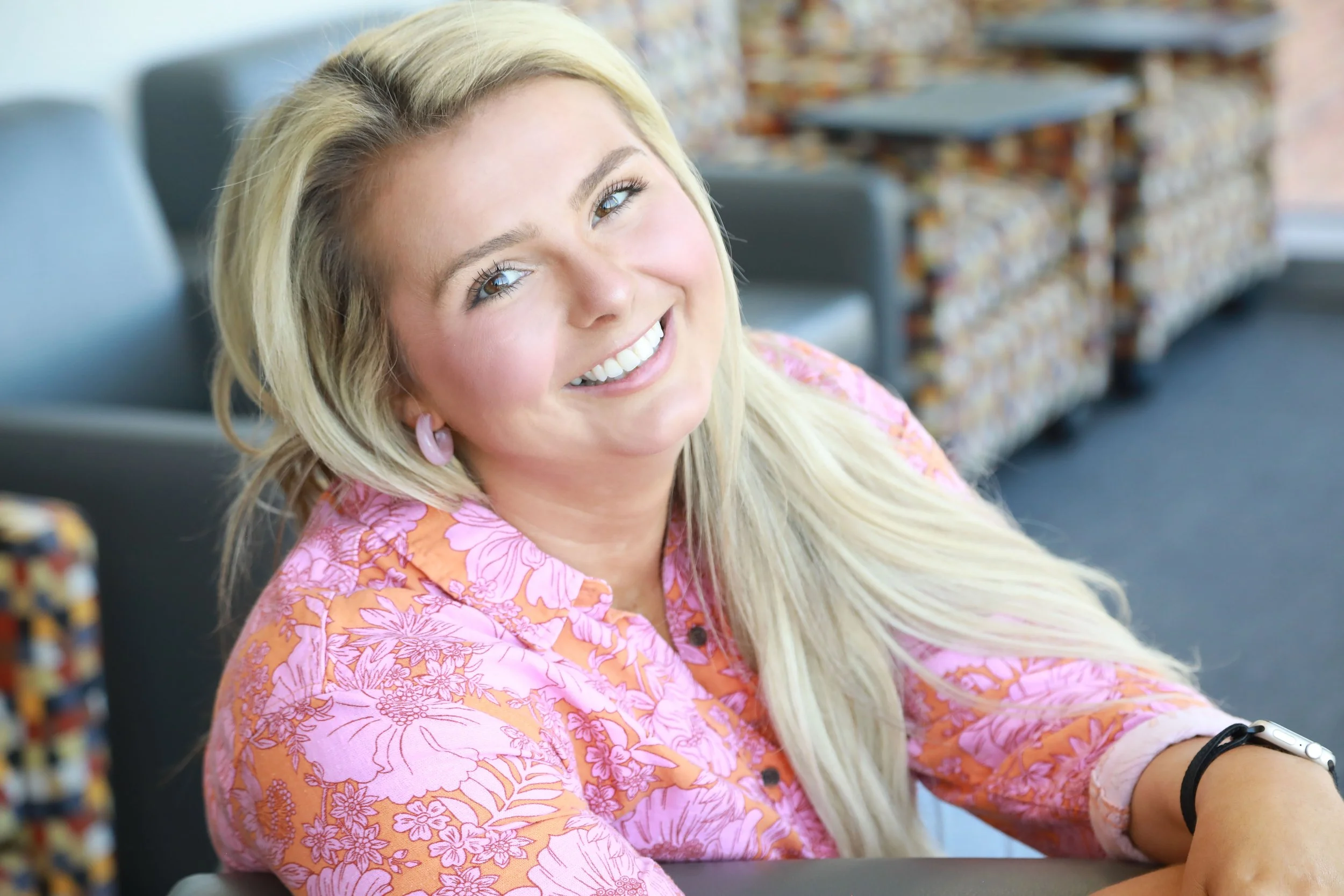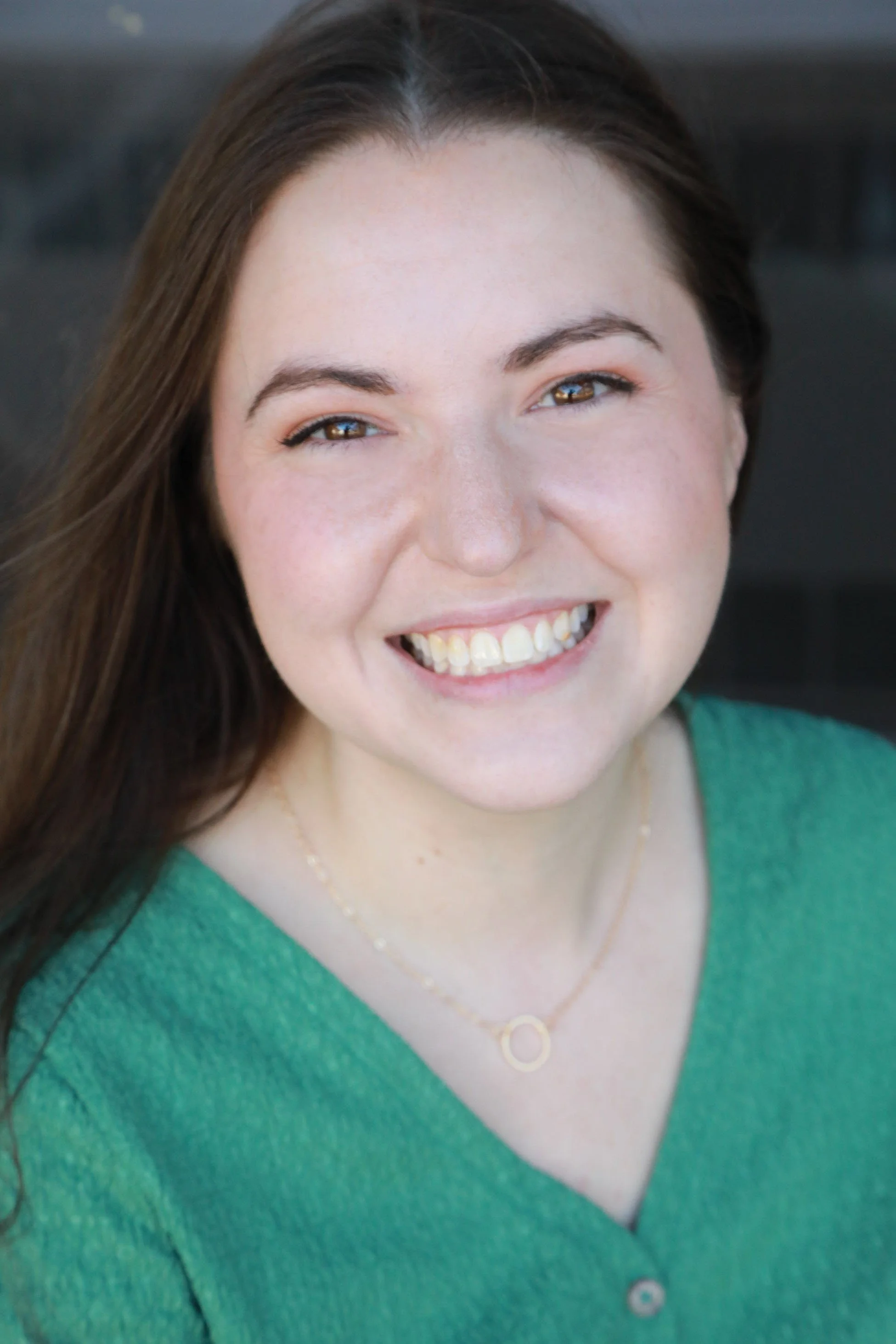Beyond the Injury: Stories of Resilience and Advocacy After Spinal Cord Injury
Alessia and her father
By Ashley-Shae Benton MD, Sarah Parks MD, Corrie Harris MD
Photos: Positive Exposure
Spinal cord injuries (SCI) alter life in an instant, changing not only the bodies of those who experience them but also their communities. Within these stories of life-changing injury lie powerful narratives of resilience and advocacy. In Kentucky, two very different journeys—one of a young mother who found her voice after injury, and one of a child whose family uprooted their lives for her care—demonstrate how courage and community transform life beyond injury.
Breezy
“I will roll with you, but not behind you.” For Breezy, these words are more than a motto—they exemplify her story. At 32, when her life changed in an instant after a car accident left her paralyzed, she chose to redefine what moving forward meant. From finishing her bachelor’s degree to creating Breezy’s Closet, Breezy has turned personal experience into a platform for advocacy, showcasing how resilience isn’t about what you lose in an accident—it’s about what you build.
Before her injury, Breezy’s world revolved around caregiving. She worked two jobs as a CNA, raised her two children, and coached youth cheerleading. “Before the injury, I worked nonstop,” she recalls. “My life was really just working and running around with the kids’ schedules.” That perspective—always caring for others—would later shape how she adapted to being on the other side of care.
Breezy and her dad
In July 2020, her family was driving home from Florida after a vacation. “I had taken off my seatbelt and reclined my seat because my eye was irritated. I fell asleep and woke up as the car was flipping,” she says. “I don’t remember going out the windshield, but I was ejected about six feet. Everyone survived—I was the only one injured.” She remembers the aftermath in fragments: a child’s scared voice, waking restrained in a hospital bed, and telling her loved ones before sedation, “I know I’m paralyzed. You got me, right?”
Breezy spent a month in a Georgia hospital before transferring back to Louisville, where she completed a month of inpatient therapy at Frazier Rehab. She insisted her therapy reflect her real-world needs. “They had a demo car for practicing transfers, but it sat so low. I said, ‘That doesn’t work for me—I drive a truck.’ So, my parents brought my truck, and that’s what I practiced in. I wanted therapy to be realistic, and I encourage others to advocate for themselves the same way.” That drive, combined with openness to care, pushed her recovery forward.
Although naturally shy, she soon found herself stepping into advocacy roles. Only a year after her injury, her counselor asked her to mentor others. The first woman she mentored had been injured earlier but was still struggling to leave home. Breezy invited her over, encouraged her to live the life she loved before her injury, and was thrilled when her mentee reclaimed her life and joy within months of their mentorship.
Moments like this solidified Breezy’s commitment to advocacy. After being crowned Miss Wheelchair Kentucky 2024, she continues to use her platform to encourage people with SCI to engage with their communities and soon launched Breezy’s Closet, a nonprofit that provides free medical supplies to those in need. Her visibility has now grown beyond Kentucky, with features in New Mobility, Leo Weekly, and the University of Louisville’s Positive Exposure exhibit showcasing diverse disability stories.
Breezy often signs off her social media posts with one line: “Find a way to live your old life with your new body.” For her, this isn’t a slogan, but a reminder to herself and a challenge to others. “If you loved something before your injury, find a way to keep doing it,” she says. “The world may never be fully accessible, but in order to live, you have to keep trying.” In every cheer squad she leads, mentee she encourages, and family she connects, Breezy proves that life beyond injury is not just possible—it’s powerful.
Breezy’s journey shows how resilience can show up in the middle of life’s responsibilities and grow into something bigger—mentoring others, building community, and finding your voice. But not every SCI story begins in adulthood, or even gets told in the survivor’s own words. Alessia’s started when she was just two years old, and for much of it, her parents have carried her story. What shines through her story, though, is the same as Breezy’s: a story of strength, joy, and the power of community.
Alessia
“She smiles while watching other kids play, even though I know she wants to join in. She’s not jaded—that’s who she is.” Those words from Mike Dragonetti capture both the challenges his family faced and the strength of his daughter, Alessia. At two years old, Alessia sustained a SCI in a car accident that changed everything for her family including schooling, medical care, and even where they lived. Now seven, she has grown into a lively, outgoing girl whose toughness and joy highlight how extraordinary she is. Alessia’s journey is a reminder of her own resilient spirit, and furthermore how the power of community and advocacy shape what life looks like after SCI.
Alessia
When asked about her accident, Alessia declines to speak about it and asks her dad to step outside to recall the event. On the day of the accident, Alessia and her family were living in New York. Alessia was sitting in the backseat of a car when the driver lost consciousness and crashed into a structural column. At the hospital, doctors initially believed Alessia was stable, no one suspecting major injuries. It was not until her father tickled her, and Alessia could not feel it, that real concern set in.
Yet, these worries were brushed off by medical staff. It took visits to two hospitals and a nurse willing to truly listen before further testing was completed. The images confirmed their worst fears. The force of the crash severed Alessia’s spine at the C6-C7 level, limiting her mobility and ability to feel below the lesion. Alessia, just months away from her third birthday, was too young to articulate what she felt, but for her parents the diagnosis was surreal.
“Breezy and Alessia remind us that resilience takes many forms: in the courage to re-enter classrooms and communities, in the strength to voice big emotions, in the choice to turn injury into inspiration for others. ”
The early months after the accident were marked by upheaval. Life’s demands did not pause, even as everything inside felt broken. “You’re relearning what it means to be human, to be a parent, even your relationship with God—all while keeping life afloat,” her father reflects. Initially, the family struggled to find support in New York. With no extended family nearby and unaccommodating schools, life started to be defined by their isolation. They were surrounded by people, and very few they could reach out to.
However, support came in an unexpected form—Instagram. While in the hospital, a family friend created an account to share updates on Alessia’s condition. Over time, it became a powerful tool to document Alessia’s journey, highlighting her life at home, physical therapy appointments, and even her family’s move to Kentucky. What initially began as a way to keep loved ones informed quickly grew into something much bigger: a global community. Families in India, China, Africa, and beyond began to connect. They share advice about supplements, equipment, and treatment options, but past sharing tips, they have built meaningful relationships through their shared experiences. The community that they’ve cultivated online continues to grow and the account now has nearly 80,000 followers, ready to share their stories and follow along for Alessia’s.
Her story, however, does have its complications. Facing insurance issues, Alessia’s access to medical treatments in New York was threatened. Without hesitation, her family began looking for other medical options, eventually finding a program in Kentucky specializing in SCI. A month later, her family packed up their belongings and moved states to start treatment. Amid these challenges, Alessia also felt the emotional weight of her injury. She opened up to her father about her emotions surrounding her injury and what it means to live with a disability. “She told me things I didn’t expect a child to even understand,” he recalls. “I realized she’d been carrying those feelings all along.”
Though her injury has brought hardships, Alessia is still the same little girl at heart. According to her father, “she’s always been tough,” remembering how a toddler-aged Alessia stood up for her brother when he was being bullied. Even today, her determination shows up in sports. She has medals on hand from swimming, track, and basketball, proudly showing them off when asked about her accomplishments. Alongside this grit, lives an appreciation for all things bright and playful. She loves sparkles, the color pink, and playing outside with friends. Her wide range of interests reflect the strength and joy she embodies in her everyday life.
Despite the challenges of living with SCI, Alessia is a testament to living fully. She thrives through her own resilience, the encouragement of family, and community support. Through her journey, Alessia and her family have become passionate advocates, aiming to raise awareness and support for others with living with SCI. Their goal is simple and clear: “to find joy.”
Though their stories begin worlds apart—Breezy as a 32-year-old mother and caregiver, Alessia as a toddler navigating childhood—they land on a common truth: life after spinal cord injury is not defined by what is lost, but by what is built. Breezy and Alessia remind us that resilience takes many forms: in the courage to re-enter classrooms and communities, in the strength to voice big emotions, in the choice to turn injury into inspiration for others. In their own ways, they both remind us that resilience doesn’t end with recovery—it sparks new beginnings, new joys, and new ways of showing ourselves and the world what’s possible.
About the Authors
Ashley-Shae Benton, MD: Dr. Benton is a disability advocate from Eastern Kentucky dedicated to amplifying voices of people with differences. She has been involved with Positive Exposure, supporting inclusive storytelling through art and education, and serves as Executive Director of the Future Healers Program, which mentors youth impacted by violence. A graduate of the University of Louisville School of Medicine and current MBA student, Ashley-Shae integrates advocacy into her journey toward surgery and healthcare leadership, advancing equity and belonging.
Sarah Parks, MD: Dr. Sarah Parks earned both her master’s degree in Physiology and Biophysics and her medical degree from the University of Louisville, where she is currently completing her first year of training in Family Medicine. As a physician with a chronic disease, she aims to highlight the voices of others living with disabilities. Through their stories, she hopes to amplify the need for greater inclusion, representation, and understanding for those within the community.
Corrie Harris, MD: Dr. Harris is a Professor of Pediatrics in the Division of Pediatric Hospitalist Medicine at the University of Louisville School of Medicine. She serves as Associate Medical Director of the Kosair for Kids Complex Care Center, is a board member for Special Olympics Kentucky, and has recently worked with the Positive Exposure Foundation to create a photography exhibition in the Kornhauser Health Sciences Library celebrating the humanity of medicine.






